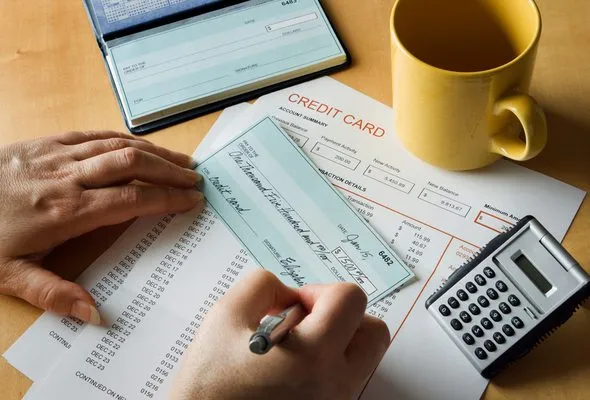When do you pay off your credit card bill? Some people pay their full balances every month by the due date listed on their credit card statements. Others carry a balance from month to month but make the minimum required payment at some point before the deadline. So when’s the best time to make a credit card payment? Before we discuss that, let’s review why you should at least pay your bill by the deadline.
If you have good income and need help managing your money, a financial advisor can guide you in creating a financial plan.
Why It’s Important to Pay Bills on Time
Most lenders use the FICO® scoring model to assess credit scores. Under that scoring model, 35% of your credit score depends on your payment history. So if you have a record of making late credit card payments, that can ding your score.
There’s another reason why you should make paying off your credit cards a priority. A credit card is a type of revolving credit account. Unlike installment credit accounts – like mortgages and student loans – revolving credit accounts allow you to borrow money whenever you need it up to a certain threshold (your credit line). There’s no fixed monthly payment and you can carry a balance from month to month by not paying your bill in full.
When it comes to your FICO® credit score, revolving debt typically carries more weight than installment debt. So while making any kind of loan payment after its due date can hurt your credit score, late credit card payments can do more damage to your credit.
The amount of debt you owe accounts for 30% of your FICO® credit score. An important part of that variable is the credit utilization ratio (the amount of credit you’ve used compared to your credit line) associated with your revolving credit accounts. That means your credit score could take a serious dive if you miss your credit card payment deadlines and you’ve used a significant portion of your available credit line.
Case for Making Early Credit Card Payments

While it’s a good idea to pay your credit card bill when it’s due, making an early credit card payment can work in your favor. To understand why, you’ll need to know how your billing cycle works.
Credit card billing cycles often last for 29 to 31 days. The last day of your billing cycle is your statement closing date. Whatever credit card balance you have on this day is usually the balance that your credit card issuer reports to the credit bureaus. Your closing date isn’t the same as your payment due date. After all, your credit card payment technically isn’t due until the end of a 21- to 25-day period known as the grace period.
By making a credit card payment before the closing date, you can make it seem as though you’ve racked up less credit card debt. For instance, let’s say you have a credit card with a $3,000 credit limit. If you spend $2,500 but pay off $1,700 before the closing date, the credit reporting bureaus will think you’ve only spent $800.
Why is that a good thing? Based on our example, the credit reporting bureaus would think that your credit utilization ratio is 26.7%. Lowering your credit utilization ratio can improve your credit score. If you want a better FICO® score, it’s best to keep this percentage below 30%.
When You Should Make a Credit Card Payment

You’ll be in good shape if you can pay off your credit card by the due date, especially if you pay your entire balance. Paying at least part of your bill before the closing date could be even better if you want a good credit score.
However, the best time to make a credit card payment may be whenever your credit utilization ratio exceeds 30%. By tracking your credit utilization ratio and keeping it as low as possible, you can protect your credit score. And you won’t have to worry about remembering the date when your credit information will be reported.
To calculate the credit utilization ratio for an individual credit card, you can take your credit card balance and divide that number by your credit line. Then multiply that number by 100.
Credit reporting bureaus also consider your overall credit utilization ratio. If you have multiple credit accounts, that’s equal to the sum of all of your credit card balances divided by your total credit limit.
Bottom Line
Trying to figure out the best time to pay off your credit card? To avoid paying interest and late fees, you’ll need to pay your bill by the due date. But if you want to improve your credit score, the best time to make a payment is probably before your statement closing date, whenever your debt-to-credit ratio begins to climb too high.
Tips to Manage Your Money
- If you have a good income, but need help managing your money, a financial advisor can help. Finding a financial advisor doesn’t have to be hard. SmartAsset’s free tool matches you with up to three vetted financial advisors who serve your area, and you can have a free introductory call with your advisor matches to decide which one you feel is right for you. If you’re ready to find an advisor who can help you achieve your financial goals, get started now.
- SmartAsset’s free credit card calculator will help you figure out the total interest and time it will take for you to pay off your credit card debt.
Photo credit: ©iStock.com/sturti, ©iStock.com/YinYang, ©iStock.com/sturti
